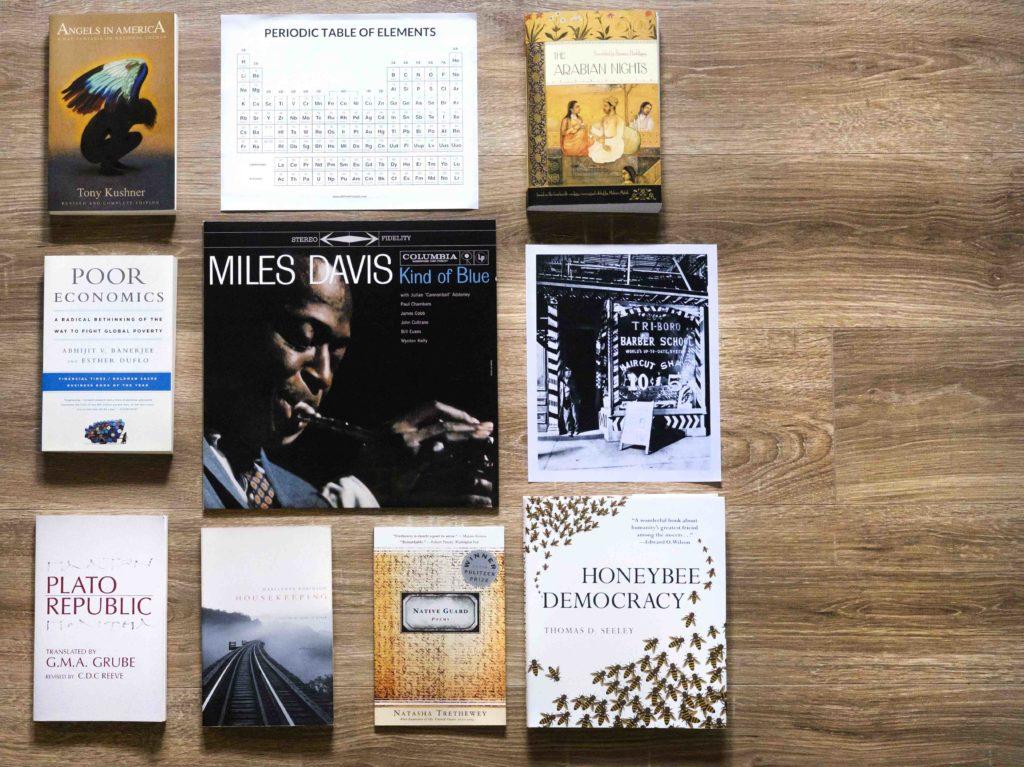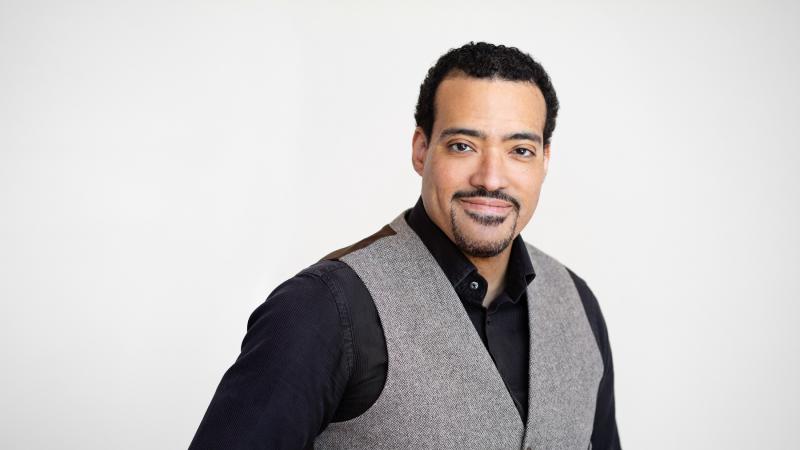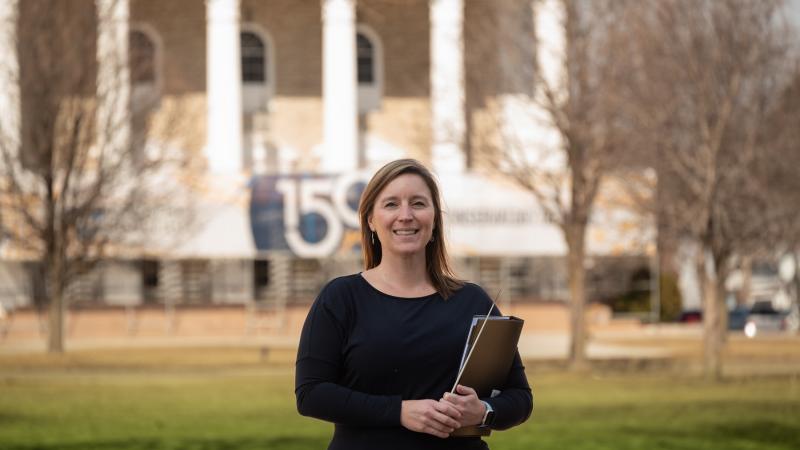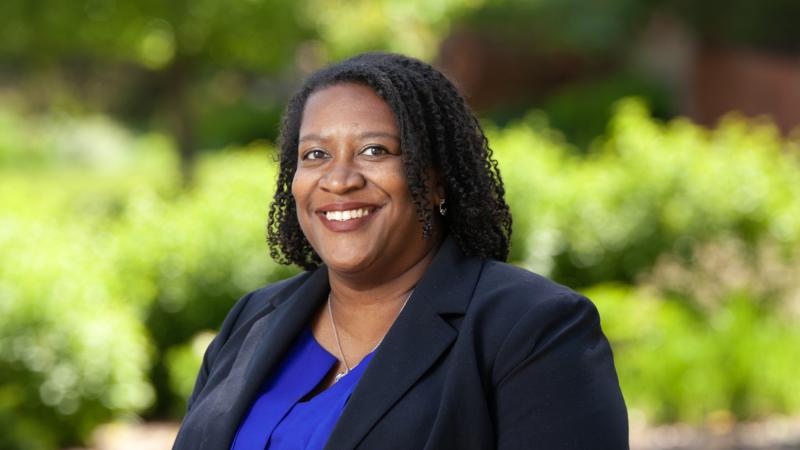Welcome to an updated guide to Lawrence University’s Freshman Studies reading list.
A year ago, we asked Garth Bond, associate professor of English, to guide us through the list. Now, as we prepare for the 2020-21 academic year, Timothy Spurgin, the Bonnie Glidden Buchanan Professor of English Literature and associate professor of English, has taken over for Bond as director of Freshman Studies. So, we reached out to Spurgin for an update to the guide, one that addresses new additions – including the exploration of a 1935 photograph and a deep dive into the Periodic Table of Elements — and provides fresh insights.
Freshman Studies, as all Lawrentians know, is an important piece of the Lawrence experience. Since its establishment in 1945, the Freshman Studies syllabus has been continuously revised to introduce a changing student body to the intellectual challenges of a liberal arts education, and to the resulting benefits of the interdisciplinary thinking it embraces.
“The entire list shows a remarkable range and an admirable ambition,” Spurgin said of the 2020-21 edition. “Lots of schools have something like Freshman Studies. I don’t know of any other program that takes in music and art, science and literature, in the ways that we do. The addition of works like the photograph and the table offers fresh proof of our enduring commitment to wide-ranging liberal learning and teaching. This is something I always feel proud of, and I know that many of our faculty, alums, and current students feel the same way.”
Here, then, is Spurgin’s updated guide, building on what Bond began a year ago:
Fall term

Natasha Trethewey’s Native Guard
Natasha Trethewey, Native Guard. This year, as we often have done recently, we’re starting with poetry. This Pulitzer-Prize winning collection, written by the University’s most recent commencement speaker, asks students to consider how private experiences are shaped by larger historical forces. Trethewey begins with the tragedy of her mother’s murder and goes on to explore the public history of American racism and the memorialization of the Civil War. Along the way, like all great poets, she also reminds us of the challenges and opportunities that come with reading and writing. This is a beautiful, moving, and thought-provoking book. (Adopted Fall 2015)
Thomas Seeley, Honeybee Democracy. From Trethewey’s poetry, we’ll move to a biologist’s study of the most fascinating of social insects: the honeybee swarm. In accounts of his own research projects, Seeley not only sharpens our sense of the scientific method, but also reveals the benefits of interdisciplinary thinking. Intellectually ambitious in all the best ways, his book explores the possibility that honeybee decision-making can serve as a model for our own democratic processes and for emerging systems of artificial intelligence. (Adopted Winter 2019)

Plato’s Republic
Plato, The Republic. There’s a reason why this book has been on the syllabus, almost continuously, for 75 years. It raises all the big questions: political questions, psychological questions, aesthetic questions, and moral questions. It’s sometimes hard to think of a major issue that doesn’t turn up somewhere in this work. The work’s presentation of its arguments in the form of a dialogue has the added benefit of helping to embody the benefits and pleasures of liberal education. By reading and discussing Plato, our new students will join a conversation begun on this campus in the 1940s. That in and of itself is a pretty amazing thing. (Adopted 1945).
Marilynne Robinson, Housekeeping. The story of two young women growing up under the housekeeping of a series of female relatives following the death of their mother, Robinson’s novel revisits the themes of loss and memory raised by Trethewey. At the same time, the novel also questions some of the lessons that Seeley would draw from the perhaps more naturally communal honeybees. Robinson particularly illuminates the impact of unwritten social expectations on women and girls, while her unreliable narrator forces students to rethink their initial views of the relationship between society and the individual. (Adopted Fall 2018)
Berenice Abbott, Tri-Boro Barber School, 264 Bowery, Manhattan. Taken in 1935 as part of the WPA’s Federal Art Project, this photograph rewards close inspection. The barber-stripe column, the contrasting façade tiles, and the patterns of light and shadow evoke modernist art styles like cubism and abstraction, but the image also functions as a document of the rapidly changing city. Studying this image gives students a chance to consider the larger claims of photography. Do photographs capture or convey an objective truth, or do they express the particular vision of the artist? If they do both, then how exactly does that happen? (Adopted Fall 2020)
Winter term
Abhijit Banerjee and Esther Duflo, Poor Economics. In this fascinating work, two distinguished economists offer a scientific approach to the battle with global poverty. Banerjee and Duflo advocate putting aside big ideas, like increasing aid or freeing markets, in favor of careful research addressed to small, specific questions. Reading the book helps students to see how answering these small questions can also give voice to the experience of those living on $1 a day. Can narrowly focused action, guided by the scientific method, really outperform our political beliefs and create a quiet revolution in economic and political institutions? That’s the big question here. (Adopted Winter 2017)

Tony Kushner’s Angels in America
Tony Kushner, Angels in America. Set in the 1980s, this Pulitzer Prize-winning play offers a searching exploration of the political and ethical conflicts of the AIDS epidemic. As its title suggests, the play also works to awaken a larger sense of possibility and wonder. Kushner’s script explores the complex motives of a politically, spiritually, and racially diverse cast. Our use of recordings from several productions of the play will take our conversation to a deeper level, as we consider the many creative acts required to move from the written page to an embodied performance. (Adopted Winter 2020)
The periodic table of elements. Many students will have used the table in high school, but few will have had the chance to explore its deeper logic. Looking closely at the table, and learning more about its history, will give students a better sense of how scientific knowledge is developed, represented, and shared. There are lots of questions to ask about this one: Who was responsible for designing the table? What other possibilities were considered, and why were they rejected? What larger arguments about the nature of the universe – that’s right, the nature of the universe! – are contained in this simple, beautiful object? (Adopted Winter 2021)
The Arabian Nights. This 14th century collection of traditional Arabian stories asks students to consider the nature and purpose of narrative. Each evening, a new bride weaves tales to keep her husband and king from killing her in the morning – as he has sworn to do with all of his wives. As she shares her remarkable stories, we are invited to consider the meaning of storytelling itself: its relationship to power and to erotic desire, the ulterior motives governing its rhetoric, and the invasive and irresistible pull of curiosity. Far from turning away, this text revels in the fruits of human action, both ripe and rotten. (Adopted Winter 2018)

Miles Davis’s Kind of Blue
Miles Davis, Kind of Blue. Lawrence’s Conservatory of Music is a fundamental part of our university community. This most famous of jazz albums invites students to explore the complex relationship between planned structure and improvised action at the heart of musical performance. As a relatively early and deeply influential LP, it further challenges students to think about the processes of memory and meaning at work in permanently recording and revisiting a “live” improvisation, as well as the cultural role and context of jazz music, especially its relationship to African-American identity. (Adopted Winter 2016)
Note to incoming students: Looking for Freshman Studies books? The first book, Native Guard, will be sent to domestic students in the US mail. Copies of the Abbott photograph and the periodic table will be made available to students later. The other works are now available from our online bookstore, www.lawrence.edu/academics/bookstore. Wherever you get your books, you should make sure to get the editions we’ve chosen for you. Information about editions, including ISBN numbers, can be found at https://www7.lawrence.edu/academics/study/freshman_studies/current_works.




